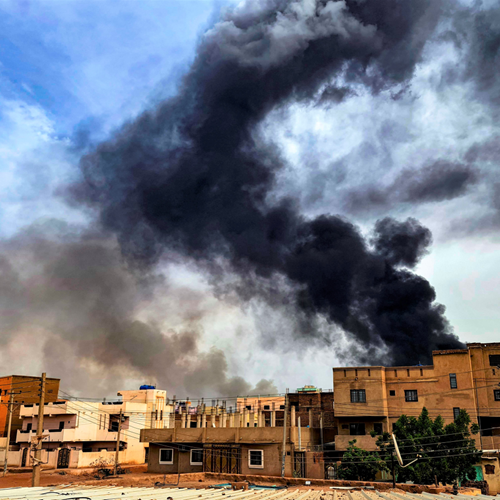Sudan now has the ignominious distinction of being home to the world’s largest internal displacement crisis. In addition to more than 2 million people displaced prior to the conflict, more than 6.6 million people are estimated to have been displaced since 15 April 2023, and more than 2 million people have crossed into Chad, South Sudan, Egypt, Ethiopia, and the Central African Republic – countries already grappling with immense difficulties.
As so often happens in war, civilians are paying the highest price. Close to 25 million people need humanitarian assistance, and 17.7 million people are facing acute food insecurity--including 5 million people at risk of “catastrophic” hunger and 3.8 million malnourished children under the age of 5 years old.
There is minimal respect for the international humanitarian law principles of distinction, precaution and proportionality. Fighting has torn through cities, towns and villages, and airstrikes and heavy shelling have frequently struck civilians. The alarming use of heavy weapons in populated areas is not only killing, maiming and destroying, it is also leaving behind unexploded ordnance that poses continuing dangers to the population.
“The humanitarian situation in Sudan is catastrophic. Fighting continues and has engulfed more than half of the country. Urban and peri-urban areas have become battlefields, escape routes and supply lines have been cut, and humanitarian aid has been blocked. Sadly, there is no end in sight for the conflict and the suffering of civilians”, says Ziggy Garewal, country director for Danish Refugee Council in Sudan.
“Despite the magnitude of this crisis and the ripple effect it is having across the region and beyond, Sudan has remained a crisis to which the international community has slowly and tepidly reacted. Civilians are in dire need of protection and humanitarian assistance, and yet there is a yawning gap between funding and humanitarian needs. The 2024 Humanitarian Needs and Response Plan has only received 5.8% of needed funding. The international community needs to step up before Sudan becomes an unthinkable tragedy that history remembers as an extraordinary and shameful moment of collective failure”, says Ziggy Garewal.
Greater support is also critical for countries in the region impacted by Sudan’s conflict. Chad has received more than 730,000 people displaced from Sudan. South Sudan has received an estimated 630,000 people and Egypt an estimated 514,000 people.
“The host countries have been extremely generous in welcoming those forced to flee Sudan, despite struggling with immense challenges of their own. A lack of resources and funding means that refugee camps and displacement sites are often overcrowded, unsanitary, insecure and with few basic services. The international community must share responsibility with host governments and communities bearing the weight of this crisis”, says Ziggy Garewal.
